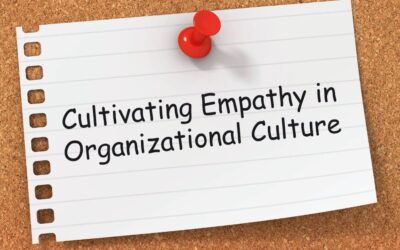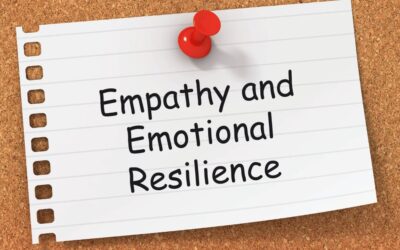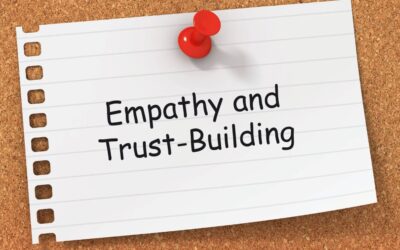Conflicts are a natural part of human interactions, and they can either create rifts or serve as catalysts for positive change. Emotional intelligence, coupled with empathy, offers a transformative approach to conflicts. In this lesson, we will explore how emotional intelligence and empathy can be harnessed to navigate conflicts, promote understanding, and transform challenging situations into opportunities for growth and resolution.
Applying emotional intelligence and empathy in conflict transformation involves the following aspects:
- Self-Awareness: Emotional intelligence begins with self-awareness, the ability to recognize and understand our own emotions and triggers. By cultivating self-awareness, we gain insight into our emotional responses during conflicts, enabling us to respond more effectively and empathetically.
- Understanding Others’ Perspectives: Empathy plays a crucial role in conflict transformation by fostering understanding of others’ perspectives. It involves actively listening, seeking to understand their emotions, needs, and concerns. By putting ourselves in their shoes, we can approach conflicts with empathy and openness.
- Emotion Regulation: Emotional intelligence enables us to regulate our emotions during conflicts. By managing our emotions and avoiding reactive responses, we can create a safe space for constructive dialogue and resolution. Emotional regulation allows us to respond with empathy and compassion, facilitating effective conflict transformation.
- Effective Communication: Emotional intelligence enhances our communication skills, enabling us to express ourselves clearly and listen attentively. Effective communication in conflicts involves active listening, validating emotions, and using non-judgmental language. By communicating with empathy and understanding, we promote trust and openness, facilitating conflict resolution.
Benefits:
Applying emotional intelligence and empathy in conflict transformation offers several benefits:
- Deeper Understanding: By approaching conflicts with empathy, we gain a deeper understanding of others’ perspectives, emotions, and needs. These understanding fosters empathy, compassion, and promotes effective conflict resolution.
- Strengthened Relationships: Conflict transformation through emotional intelligence and empathy builds trust, connection, and stronger relationships. By engaging in empathetic dialogue and understanding each other’s concerns, relationships can grow and deepen.
- Opportunities for Growth: Transforming conflicts provides opportunities for personal and interpersonal growth. By embracing conflicts as learning experiences and seeking resolutions that meet everyone’s needs, we can foster personal development and stronger connections.
- Constructive Problem-Solving: Emotional intelligence and empathy enable us to engage in constructive problem-solving during conflicts. By creating an environment of mutual respect, active listening, and understanding, we can collaboratively find creative solutions that address underlying issues.
Strategic Ways to Apply Emotional Intelligence and Empathy in Conflict Transformation:
- Practice Active Listening: Listen attentively, validate emotions, and seek to understand others’ perspectives. Active listening promotes empathy, builds trust, and paves the way for effective conflict transformation.
- Cultivate Emotional Regulation: Develop strategies to manage your emotions during conflicts. Take deep breaths, practice mindfulness, and focus on responding rather than reacting. Emotional regulation allows for thoughtful and empathetic responses.
- Seek Win-Win Solutions: Instead of focusing on winning or losing, aim for solutions that meet the needs of all parties involved. Collaborative problem-solving promotes empathy, understanding, and long-term relationship building.
- Use “I” Statements: When expressing your own concerns and needs, use “I” statements to avoid blaming or accusing others. This approach promotes open communication, reduces defensiveness, and encourages empathy.
Conclusion:
Emotional intelligence and empathy are powerful tools for transforming conflicts into opportunities for growth, understanding, and resolution. By cultivating self-awareness, understanding others’ perspectives, regulating emotions, and practicing effective communication, we can navigate conflicts with empathy, foster understanding, and build stronger relationships. Applying emotional intelligence and empathy in conflict transformation leads to personal growth, strengthened connections, and a more harmonious and empathetic world.
FAQs:
Can emotional intelligence be learned and developed?
Yes, emotional intelligence is a skill that can be learned and developed through self-reflection, practice, and a willingness to improve interpersonal skills.
How does empathy contribute to conflict transformation?
Empathy plays a crucial role in conflict transformation by fostering understanding, validating emotions, and promoting open communication. It allows for a deeper connection and helps in finding mutually beneficial solutions.
Can emotional intelligence and empathy be applied in professional settings?
Absolutely, emotional intelligence and empathy are valuable skills in professional settings. They enhance communication, promote collaboration, and contribute to positive work environments.
How can I cultivate self-awareness to enhance emotional intelligence?
Cultivating self-awareness involves reflection, self-assessment, and seeking feedback from others. Practices such as journaling, mindfulness, and self-reflection exercises can aid in developing self-awareness.
What are some strategies for effective communication during conflicts?
Active listening, using non-judgmental language, and validating others’ emotions are key strategies for effective communication during conflicts. These practices promote empathy, understanding, and constructive dialogue.













